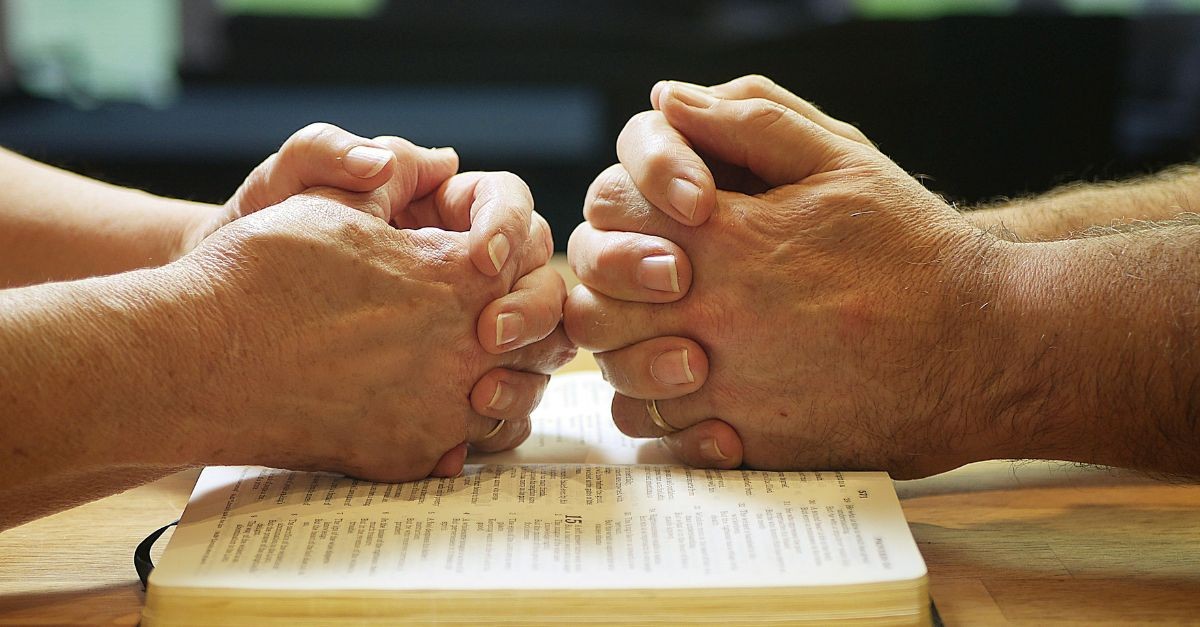
Are you single? With aspirations to tie the knot down the road?
No, this isn’t a pitch for a dating app. Nor will I dole out tips on how to spot the right candidate. The journey toward marriage is as unique as the person undertaking it. For instance, growing up I’d always assumed I’d be married by 25. Yet, my wedding didn’t happen until almost an entire decade later.
It wasn’t until after I paused to investigate why 25 that I discovered the straightforward answer: because my mother walked the aisle at this age.
Like me, our culture carries assumptions about romantic relationships. And like what I did with my personal assumption above, if you wish to be married, it’ll benefit you to examine these prevailing assumptions. Let’s look at three of them.
Photo Credit: ©Pexels/Thomas Ward

1. The Hidden Bond of Casual Sex and the Lasting Scars it Leaves
You might’ve heard Bible-believing Christians explain that sex is for marriage. Not before or outside, but within a godly marriage.
If this principle plants a sneer on your face, hear me out. God never issues a ruling to keep us from enjoying life. It’s the opposite; He gave us His word to maximize our enjoyment of life (Psalm 81:13-16). After all, He loves to delight us with the desires of our hearts (Psalm 37:4).
Here’s one reason God reserves sex only for married couples. Scripture calls spouses “one flesh” (Genesis 2:24, Matthew 19:5, Mark 10:8) because sexual intercourse unites the two bodies into one. Science shows that human brains release oxytocin during sexual intercourse. This neurotransmitter facilitates bonding, which means that, whether you have feelings for your sexual partner or not, by the time you’re done with the act, you’ll have a stronger bond with the individual, no matter what.
So, by engaging in casual sex, you’re also forming an attachment with your sexual partner. But when you two split up—either because you were “friends with benefits” to begin with or because your romantic relationship went kaput somehow—you’re tearing that bond into pieces. To imagine the resulting devastation in your soul, count the number of times you’ve engaged in casual sex, and you’ll get the idea.
And since the same parts in the brain are activated whether we experience emotional or physical pain, by failing to reserve sex for marriage only, we’re also actively adding to our own hurt. No wonder Proverbs 6:32-33 says, “Whoever commits adultery (sleeping with anyone other than your spouse)... lacks understanding; he who does so destroys his own soul. Wounds and dishonor he will get, and his reproach will not be wiped away” (NKJV).
These soul-level wounds inflict both men and women and foretell more bad things to come. That’s because a wounded soul is the opposite of a prospering soul—and yet, if our soul doesn’t prosper, the rest of our life won’t either (3 John 1:2).
Photo Credit: ©Unsplash/Sharon McCutcheon

2. Shared Spiritual Beliefs Matter in Relationships
Sometimes Christians resort to missionary dating—dating someone with the purpose of converting that person into Christianity—to heed the warning of 2 Corinthians 6:14, “do not be mismatched with unbelievers” (NASB).
But dating a non-believer with the hope of converting him or her to Jesus is risky.
Here’s the first risk. Let’s say your significant other agrees to adopt your faith. Hooray! Now you both can marry, right? At least you’re not violating the 2 Corinthians 6:14 principle mentioned above. But here’s the thing. If your sweetheart converted to Christianity just to please you, a human being, then the opposite is also true. The new convert could also leave Christianity because of a fellow human being, whether it’s you or some other person.
The truth is, receiving Jesus as Lord is a personal decision that should only be made with the influence of the Holy Spirit (1 Corinthians 12:3), not the manipulation of human efforts.
But there’s another possibility. If your significant other refuses to adopt your faith, what then? Will you break up your relationship (and suffer from a broken heart)? Will you marry the person anyway, knowing full well that you and your spouse disagree about spiritual matters? How about your future children? Notice what the Bible says about God’s plan for marriage: “Didn't God create you and your wife to become like one person? And why did he do this? It was so you would have children, and then lead them to become God's people” (Malachi 2:15, CEV). But when you marry an unbeliever, there’s no guarantee your children will be raised in a godly way.
The best candidates to build a lasting marriage with are those who already share your faith in Jesus.
Photo Credit: ©Unsplash/Tony Lomas

3. The Truth about Living Together Too Soon
On the surface, living together looks like the thing to do. What better way to test long-term compatibility than sharing a household with the person you’re involved with? Besides, with today’s sky-high prices, cohabitation makes financial sense. Just live together with your intended, and then you’ll know if you’re supposed to marry that person.
Nope. Living together is an example of the principle presented in Proverbs 14:12, there’s a way that seems right, but the end is deadly. This death can include all kinds of loss, not just the actual end of life: ruined finances. Self-esteem. The demise of the relationship with the person you cohabited with.
Ask any married couple, and they’ll tell you that marriage isn’t always rosy. Many challenges often wedge themselves between spouses, creating conflicts. But thankfully, God’s grace is always present to sustain us.
Except if we ignore His principles.
Think of it like operating your car. If the car manufacturer designed your Civic to run on gas, but you insist on refueling it using maple & brown sugar oatmeal instead. No matter how cute your Civic is, it won’t travel anywhere, even after you start the ignition and step on the gas pedal. No amount of prayer will change the fact that your car is missing a key component.
Intimate relationships are no different. God isn’t obligated to grace us when we knowingly sin, like by choosing cohabitation as opposed to marriage.
Photo Credit: ©Getty Images/Fizkes

It’s Never Too Late to Let God Rewrite Your Love Story
What if this article’s too late? Maybe you’re used to sleeping around. Perhaps you’ve invested years in a relationship with a Buddhist. Wiccan. A devout atheist. Or maybe you’ve gotten used to other non-biblical ways of living. What then?
The good news is that God has provided a solution. He designed an undo button called repentance. Acts 3:19 says, “Repent, then, and turn to God, so that your sins may be wiped out, that times of refreshing may come from the Lord.” To repent means to change our inner person, particularly with regard to accepting God’s will.
What is it you need to change? Start the repentance process, just you and God. Then ask Him what’s next. He might tell you to move out if you’re currently cohabiting with someone. He might assure you that once you’ve asked Him to forgive your sins, all your previous wrongdoing ceases to exist. Your past mistakes don’t have the right to keep haunting you.
No matter what you sense the Lord says, do it. Take it from someone whose single status lingered longer than other brides she knew, but obeyed God anyway. Go ahead, you can ask me if the process is worth it.
God doesn’t play favorites (Romans 2:11). What He’s done for me, He’s eager to do for you. You, too, will experience marital fulfillment if you invite God to oversee your love life.
Because, yes—waiting for God for your spouse is definitely worth it.
Photo Credit: ©iStock/Getty Images Plus/Sanja Radin

Originally published Tuesday, 17 June 2025.

Was this resource helpful? Add Christianity.com as a trusted source for Biblical content.
